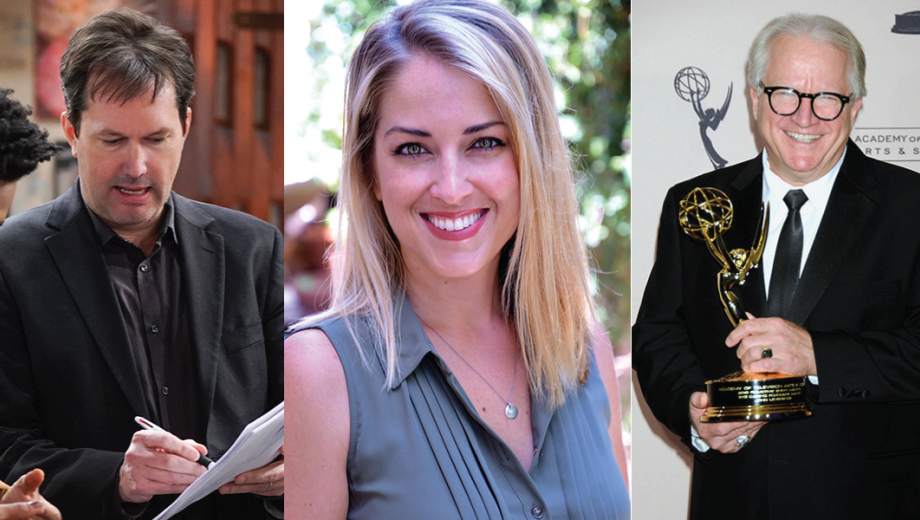In “Humanities at Work,” Tableau spoke to three humanists who found Hollywood success: Bob Daily, AM’86, executive producer of the CBS comedy Superior Donuts; John Leverence, AM’69, senior vice president of the Academy of Television Arts and Sciences, which awards the Emmys; and Courtney Saladino, AM’08, who recently joined Marvel Television as director of original programming.
Here Daily, Leverence, and Saladino share more about their career paths and day-to-day work.
Bob Daily on his pre-Hollywood career as a reporter—and Elvis expert: I was not a particularly hard-hitting journalist. I did a lot of entertainment reporting. I covered theater—that was one of my big beats and something I gained an appreciation for at U of C. I wrote reviews but also profiles of playwrights, from David Mamet to August Wilson to John Guare, and I also covered sports.
I pride myself on being at one point one of America’s foremost experts on Elvis impersonators. I covered an Elvis impersonator convention in Vegas and spent a day hanging out with an Elvis impersonator. I ended up writing a biography of Elvis Presley for young readers, which actually got an award from the New York Public Library. So that was the culmination of my Elvis fascination.
Courtney Saladino on telling stories in the age of “peak TV”: The opportunity to tell the kinds of stories that I’m really passionate about is really taking place in TV. The movie studios aren’t making the kinds of movies they were 20 years ago. There are wonderful independent films that are telling character-based stories, but they’re not breaking through the way they used to.
I think that maybe one reason we’re seeing the rise of these limited series and anthology series—TV shows that are one season, ten to 13 episodes—is that the format offers an opportunity to more deeply explore stories and complex characters that traditionally feel more cinematic.
For us, it does slightly change the way we think about material: is this a movie we want to develop for the next ten years? Or is there an opportunity to try to sell it as a TV show next season? Ultimately, it comes down to the material and figuring out what medium is best to tell that particular story.
John Leverence on the rise of the “dramedy” and challenges of categorizing TV shows for the Emmys: One of the trickiest challenges we have every year at the Emmys is the categorization of programs: what goes where. In today’s mix of comedy and drama series, the distinctions get blurred, because the continuum from sitcoms to dramadies is broader, e.g., is Orange is the New Black a drama series or a comedy? How about Lemony Snicket’s A Series of Unfortunate Events: a comedy series or a drama series? Transparent? And what to do with Shameless, a goofy yet dead serious mashup of broad comedy and dark drama?
Who would have thought that being trained in the academic areas of generic literature and filmed entertainment could be so very useful for making reasoned, defensible evaluations regarding the Emmy program categorizations that are so critical to the integrity of the annual competition? So, a big thank you to my Chicago professors for teaching me the modes and mechanics of those humanities-based analyses that have served me so well lo these nearly forty years at the Television Academy!

